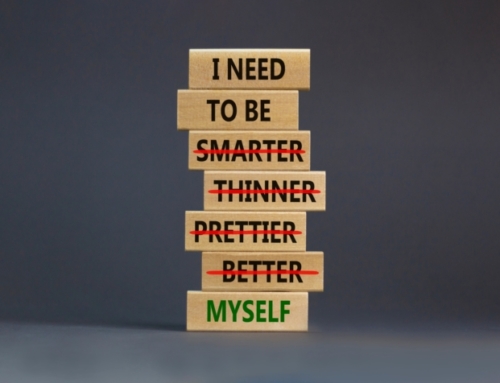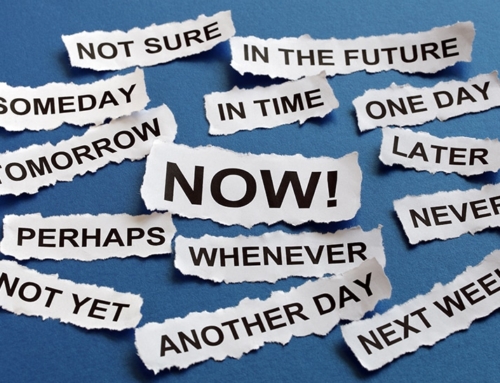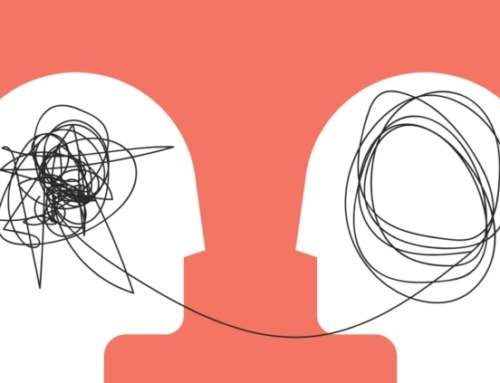We evolved to be attuned to acute problems and threats and to act urgently, powerfully, and even aggressively to resolve them. We’re not quite as good – but still very good – at predicting future threats and problems and planning ways to avoid them. Sometimes we get waylaid from planning solutions into chronically worrying about those potential problems and threats, but that is a discussion for another post.
What we are much less good at is identifying slowly … very slowly … growing problems. Our nervous systems seem to have an upper and lower boundary on our ability to perceive the speed of change. When change is too fast, like a bullet whizzing by, we don’t see it. If the change is too slow, we also don’t see it.
During my medical training, I recall seeing those amazing images in textbooks of pathologies of enormous extent, like the person whose basal cell carcinoma ate away half their face. Or the person with a 20-pound tumor on the side of their head. How could anyone let this go for so long? Of course, many of these images were from long ago and maybe these particular unfortunate individuals had no prior access to care. I’m sure this must be true.
I think there may be an additional issue involved: if you’re carrying around a 20-pound tumor, it remains a 20-pound tumor tomorrow … and the next day too.
I think it is hard for many of us to attend to changes, even deleterious ones, when they advance very, very slowly. My suggestion for you today is to conduct a personal inventory, with a particular focus on negatives in your life that have gotten worse slowly and not yet triggered a corrective response from you.
Here are some possibilities:
- Poor sleep: How is your sleep? Do you fall asleep easily, stay sleeping throughout the night, and wake refreshed? If not, what may be contributing to your less-than-ideal sleep? And, btw, often more than one contributor can be identified. Are you exercising too late in the day? Or not exercising at all? Are you drinking too many caffeinated beverages? Even though the half-life of caffeine is only 5-6 hours, after several days of increased intake you may remain wired throughout the night. Perhaps it’s time to throttle back? Maybe your room is too warm or too cool. Maybe you’re doing your taxes in bed right before you try to fall asleep. Maybe there is too much light in the room. Maybe you’re drinking too much alcohol – alcohol is a CNS depressant and may help a person become drowsy and fall asleep, but it disrupts sleep architecture, leading to middle-of-the-night wakefulness. There are many more questions to ask yourself.
- Feeling tired: Feeling tired is extremely common. Poor sleep may be a contributor, of course, but many more factors may come into play. Poor diet. Sedentary lifestyle. Chronic stress. Relationship problems.
- Chronic stress: Now I’m asking you to consider bigger and bigger topics in your life. It’s so easy to ignore these deleterious changes in our lives. But if you begin to systematically consider the contributors, you’ll be in a stronger position to address these contributors. So, what is adding to your chronic stress? Be specific. Saying, “It’s my job … or my kids, or my spouse” is too general. What is it exactly about your job, kids, or spouse that is not comfortably and sustainably borne by you?
Some of these may be hard questions to ask yourself, but I submit that identifying chronic and advancing problems now rather than later is beneficial. When a person is increasingly exhausted by growing problems, their ability to engage in solutions slowly diminishes. Then drastic and potentially ill-considered solutions come to the foreground, such as the desire to just run away, to just quit one’s job, or dissolve one’s marriage.
In this time during which many people consider resolutions, it’s a good time to take one’s personal inventory. If you do, you don’t even need to do anything about it right away. You may wish to attend more to these negative aspects, to try to understand better, to weigh your possible solutions. So, taking a personal inventory is the first and crucial step.
Until next time,
Dr. Jack
LanguageBrief
“I have realized; it is during the times I am far outside my element that I experience myself the most. That I see and feel who I really am, the most!” – C. JoyBell C.
“Great design is not just a solution, it is the elimination of the problem.” – M. Cobanli
“I am larger, better than I thought; I did not know I held so much goodness. All seems beautiful to me. Whoever denies me, it shall not trouble me; Whoever accepts me, he or she shall be blessed, and shall bless me.” – Walt Whitman







Leave A Comment